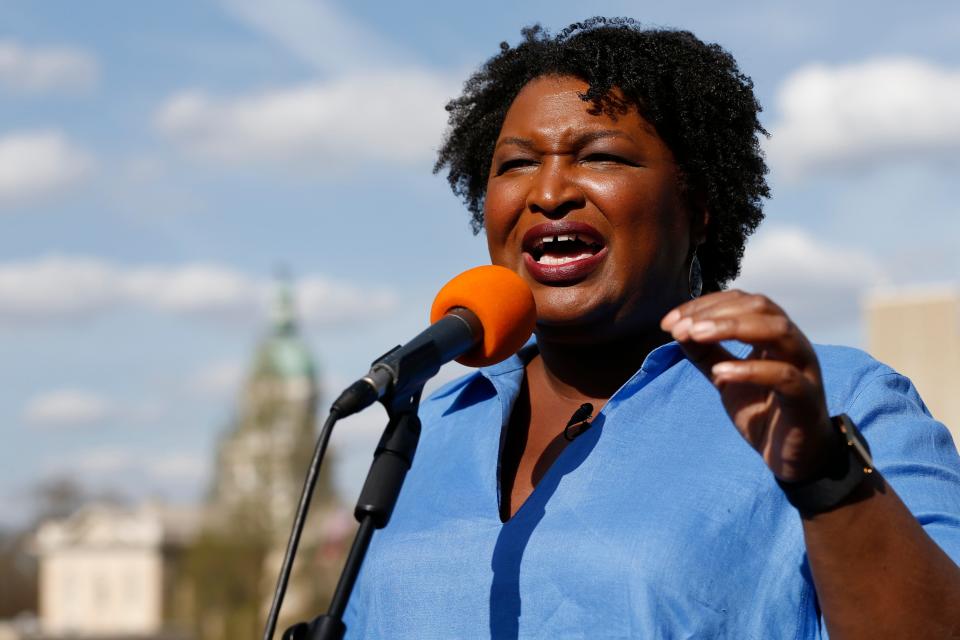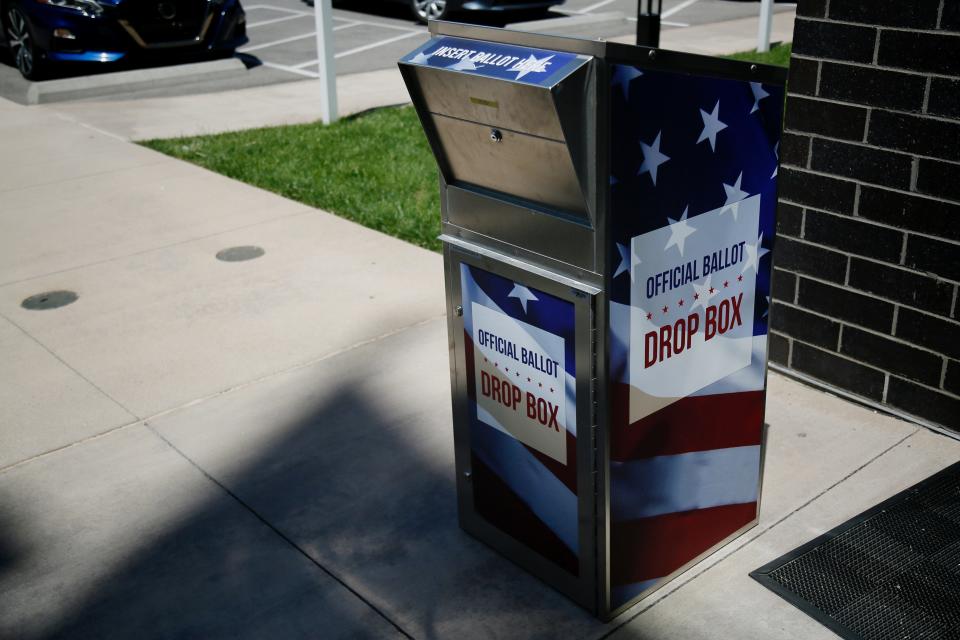My Take: Pushing 'secure elections' agenda just another way to disenfranchise minorities
- Oops!Something went wrong.Please try again later.
In November of last year, Senate Republicans blocked the John Lewis Voting Rights Act from advancing through Congress. This bill would have expanded and reinforced the government’s ability to respond to voting discrimination was blocked by using the outdated filibuster. Since then, there have been several states that have passed restrictive voting rights legislation. From Wisconsin, Georgia, and even Michigan, our voting rights are being challenged. But the fight is not over as each state still has the ability to strengthen their own voting rights.
The voting process can be manipulated in many ways, Georgia is a prime example of this. Georgia has had an extensive history of voters, specifically people of color, having to go through a difficult registration or other unnecessary hurdles to register to vote and successfully cast their ballot in the voting process. This is outlined in a new voting law that was passed in the fall of last year, which includes: less time for voters to request an absentee ballot, new strict photo ID requirements, and even possible misdemeanor charges for offering food or water to those waiting in line to vote.

With these new restrictions, electing officials that will make change is even harder, but there is still hope. Although a state with strict voting laws, there have been remarkable voting rights activists from Georgia. One you may have heard of is Stacey Abrams; a lawyer, author, former representative in Georgia’s House, and now a potential candidate for governor. Abrams has worked endlessly to fight for voter and civil rights, electing her as governor would be a big step in the direction of voting reform in Georgia.
Georgia is not the only state to worry about, another is Wisconsin. Earlier this year, Wisconsin’s Supreme Court ruled that ballot drop boxes will not be used in the April election. Drop boxes are an easy and accessible way for voters to turn in their absentee ballots, banning them will make voting even more difficult. The state’s Supreme Court has not made its final decision on whether Wisconsin will ban drop boxes for future elections, which means there is still a chance for Wisconsinites to push back against this new ruling and make it clear that it is the wrong direction for voter protection.

Michigan is also no stranger to challenging voting rights. There are two potential ballot proposals for this year’s election, Promote the Vote and Secure MI Vote. Promote the Vote’s goal is to allow nine days of early voting, subsidize and track absentee ballots, continue to allow voters to sign an affidavit attesting to their identity instead of providing state ID, and much more that would make voting accessible and fair. On the other hand, Secure MI Vote’s goal is to get rid of the existing affidavit, requiring multiple forms of ID for voter registration, in-person voting, and absentee ballots. This proposal would make it much harder to vote and would even disqualify those who do not have a photo ID.
Many people wonder why there seems to be such an overwhelming national threat to voting rights. The attack comes from people who believe elections in America continue to be fraudulent and rigged. Passing legislation that requires a photo ID to vote should reduce the amount of fraud in elections, at least that's what the opposing argument is.
This argument is not based on fact and is not backed by evidence. Fraud in elections is extremely rare; in fact, the alleged fraud is primarily an accident caused by election workers, not voters pretending to be someone they are not. Claiming that elections need to be more secure is just another way to discriminate and legally disenfranchise minorities.
Ultimately, each state has different issues, but the solutions are the same. While protection of voter’s rights was not passed on a federal level, citizens in every state can still push back negative voter rights legislation. By continuing to elect officials who will not impose on the voting process and choosing the right ballot proposals, voting can continue to be a fair, equal, and accessible right to every U.S. citizen. Michigan voters should register to vote now, if they are not already, and be prepared to vote for progress and protection of voter’s rights in this year's election.
— Julian Gonzales is a student at Grand Valley State University and a fellow with the Human Rights Campaign. He resides in Saugatuck.
This article originally appeared on The Holland Sentinel: My Take: Pushing 'secure elections' agenda just another way to disenfranchise minorities

